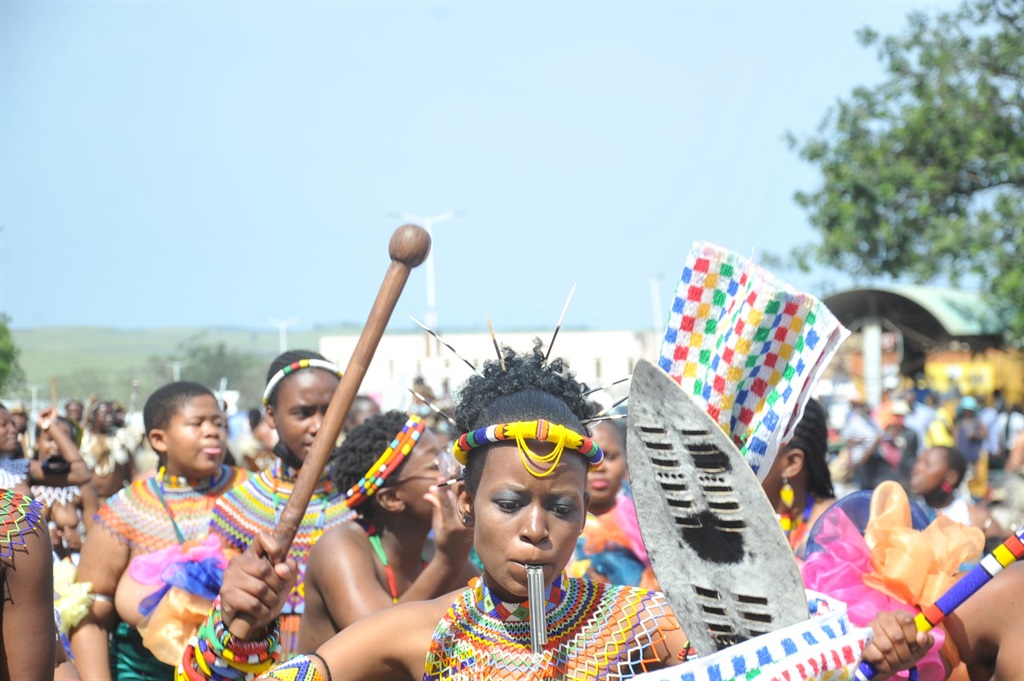
The work of women traditional leaders to transform the institution and to advocate for rural women in the face of immense challenges is worth paying attention to, writes Cori Wielenga.
Many well-meaning women’s rights advocates have challenged the institution of traditional leadership in an attempt to stand up for women's rights on behalf of rural women. But a closer look at the realities of the roles and work of women traditional leaders from across South Africa shows that many are working to transform the institution from within.
In fact, the work of these women is reminiscent of the struggles of women's and feminist movements globally and throughout history. And as is so often the case with such movements, they are often side-lined and receive little attention.
As we are prompted by the annual commemoration of Women's Month to consider a broad range of topics related to women's rights, this is perhaps an opportune moment to reassess the ideas many hold about traditional leaders – and especially women traditional leaders.
Bad rap
National Action Plan on Women, Peace and Security South Africa's National Action Plan on Women, Peace and Security (2020 to 2025), which exists within a broader United Nations agenda, seeks to enable the meaningful participation of women in peace processes and prioritise their needs, experiences, and agency in all conflict and non-conflict contexts.
To date, in South Africa and in most countries in Africa, women traditional leaders are rarely considered in achieving this agenda, despite the fact that traditional leaders in general have enormous constituencies, an enduring popular legitimacy and authority in communities in most parts of the country (and continent), as well as the ability to mobilise people quickly and efficiently.
Yet they are often not taken seriously, partly because of the bad rap they get in the media, policy circles, and academia, and because the traditional leadership structure is seen as patriarchal, "backward", and undemocratic. However, women traditional leaders from across South Africa are working steadily to change the institution, with a focus on advocating for rural women in the country. Many hold positions in the National or Provincial Houses of Traditional and Khoi-San Leaders; some sit on committees of the African Peer Review Mechanism; others are lawyers, businesswomen, or educators in addition to their role as traditional leaders.
Breaking down stereotypes
As anthropologists John and Jean Comaroff describe in their book The Politics of Custom, the 21st-century African sovereign comes in many guises, from that of a university lecturer to the CEO of an ethno-corporation.
This is more than true for the women represented at a roundtable dialogue recently held at the University of Pretoria. The discussion brought together stakeholders from the institution of traditional leadership, government, civil society, the diplomatic corps, and academia to explore ways in which women traditional leaders might play a role in South Africa achieving its National Action Plan on Women, Peace and Security.
The women in attendance demonstrated an acute understanding of government policies, the functioning of a diversity of government departments, and the complex intersection of Roman-Dutch and customary law. This is a far cry from the stereotypes many might hold – of an institution that is "backward” and out of touch.
Multifaceted roles
With the advent of democracy in South Africa, there was perhaps an assumption that through the introduction of local government and ward councillors, traditional leaders would become redundant.
Some 29 years later, this is clearly not the case. Women traditional leaders play multifaceted roles, from assisting community members in securing ID books and helping young people access educational and employment opportunities to raising private funding to build healthcare and educational centres and being the first responders when women are victims of gender-based violence.
"We have to know everything – every policy and the functioning of every government department – so that we can assist our people in accessing what they need," said Nkosi Nokhaka Jumba, National Chairperson of the Women’s Wing of the Congress of Traditional Leaders of South Africa. (Many women traditional leaders choose the title "Nkosi” or "Kgosi” – the masculine form of "traditional leader" – because they believe that they fulfil a role that transcends gender. Others choose to use the feminine form of the term, "Nkosikazi" or "Kgosigadi" because they want to bring attention to the fact that women can also hold the position of traditional leader).
Women like Nkosi Mhauli, former Chairperson of the National House of Traditional Leaders, described how they fought to have a gender committee added to the committees that form the house, and pushed to put the concerns of rural women on the agenda.
The changing roles and work of women traditional leaders highlighted during these conversations are a reminder that traditional leaders are critical stakeholders whose work South Africa could benefit from. They have access to large constituencies, play a pivotal role in settling disputes in their communities, and they have the clout and heart to implement the priorities of the National Action Plan on Women, Peace and Security with the support of other stakeholders.
Whatever our position might be on the institution of traditional leadership or on the actions of particular traditional leaders, the work of women of stature to transform the institution and to advocate for rural women in the face of immense challenges is worth paying attention to.
- Professor Cori Wielenga, Director of the Centre for Mediation in Africa at the University of Pretoria.
*Want to respond to the columnist? Send your letter or article to opinions@news24.com with your name and town or province. You are welcome to also send a profile picture. We encourage a diversity of voices and views in our readers' submissions and reserve the right not to publish any and all submissions received.
Disclaimer: News24 encourages freedom of speech and the expression of diverse views. The views of columnists published on News24 are therefore their own and do not necessarily represent the views of News24.




 Publications
Publications
 Partners
Partners























